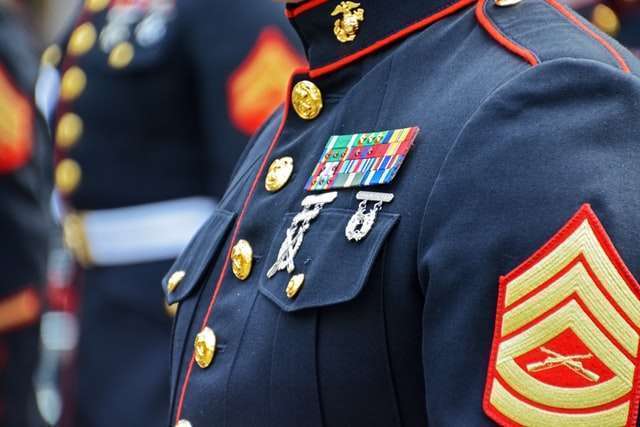
The Importance Of Proper Protection For Those Serving In The Military
(CW: War. The following information contains words or phrases that may trigger a traumatic response in some readers.)
Every year, thousands of servicemen and women across the globe are exposed to the sounds of combat. Despite the Department of Defense’s ongoing initiatives to protect their hearing, due in part to a massive failure in the standard-issue ear plugs provided to soldiers, hundreds of thousands of veterans have suffered hearing loss.
Hearing screenings continue to be part of the annual health checkups for active-duty service members. Naturally, over time even with regular noise exposure, hearing can decline. But when you spend any amount of time in a combat zone, you’re exposed to noises between 140-180dB, which are at least 55dB louder than “safe” noise. Without proper ear protection at those levels, permanent damage can occur in a little as a half a minute.
What Happened?
Since 1948, the US Military has had programs in place to help minimize the risk of excessive noise exposure to service members. In 2004, protective earplugs became part of the standard issued equipment for every active duty soldier. 3M was contracted by the government to provide dual-ended earplugs that soldiers could insert one way or the other depending on the level of noise reduction they wanted. For over a decade, 3M supplied combat arms earplugs to the DoD under the pretense that they would provide the highest level of protection to the wearer.
In 2015, a competitor blew the whistle on 3M, stating that the company knowingly violated the False Claims Act and provided defective CAEv2 combat arms earplugs to nearly every soldier serving between 2002-2015. These earplugs were known to have failed safety testing in the factory and since 3M was the DoD’s only hearing protection contractor, they simply continued supplying them.
The company settled with the federal government in 2016, with a $9 million settlement, but never admitted fault. Since then, over 200,000 servicemen and women have filed lawsuits stating that, due to the faulty ear protection provided by 3M, they developed hearing loss and/or tinnitus. Litigation is complete in 10 of these cases, with half of the verdicts awarded in the plaintiff’s favor.
In the remaining 5 cases, which are all being tried in a central court in Florida, no settlement was paid out because the plaintiff failed to prove their injury was related to the defective protection supplied by 3M. Injury law offices continue to present cases on behalf of veterans across America and are hopeful 3M will eventually settle across the board.
With that many pairs of defective earplugs issued, it’s no wonder that hearing loss and tinnitus have risen to the top of the list for combat-related injuries sustained by veterans. If you are a veteran and have sustained hearing loss, it could be in your best interest to reach out to an injury attorney to see if you qualify for compensation. It won’t restore your hearing, but a financial payout could bridge the gap if your loss has negatively impacted your life.
What’s Next?
As litigation continues, the military has ramped up its efforts to ensure soldiers’ hearing is protected. Not only have weapons been modified to reduce noise, but protective ear wear also continues to advance.
The Department of Defense is currently experimenting with digital, smart hearing protection. Known as TCAPS, tactical communications and protective systems, these Bluetooth compatible earplugs use smart technology to adjust for the wearer’s surroundings. If it senses loud noise, it will automatically turn that sound down while simultaneously amplifying soft sounds.
This is particularly relevant because being able to hear adequately is a requirement for military members. Enemy voices, the sound of a twig snapping behind you, or hearing a whispered command are all critical on the battlefield. In fact, if you can’t hear at a certain level, you won’t even make it past the initial screener.
Many soldiers still opt for foam or flange style hearing protection but current trials indicate that INVISIO’s TCAPS may soon be standard safety equipment offered to men and women in the armed forces. A bonus is that this equipment is molded to the user’s ear and they’re waterproof to 20m deep.
While failure to use proper hearing protection isn’t the only cause of hearing loss or tinnitus, persistent noise exposure higher than 85dB is almost guaranteed to have a negative affect on your hearing. If you work in a noisy environment, take care to follow OSHA standards set forth for your protection.